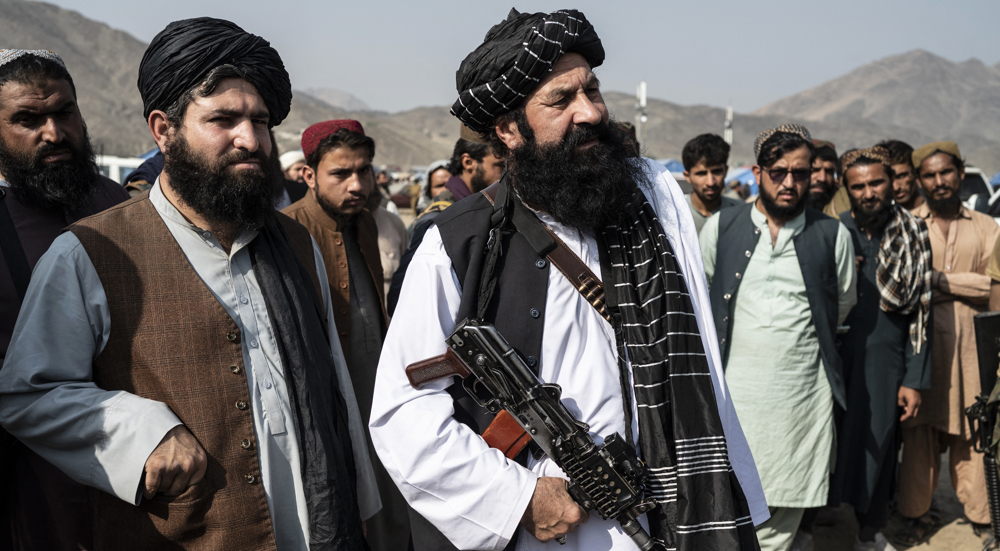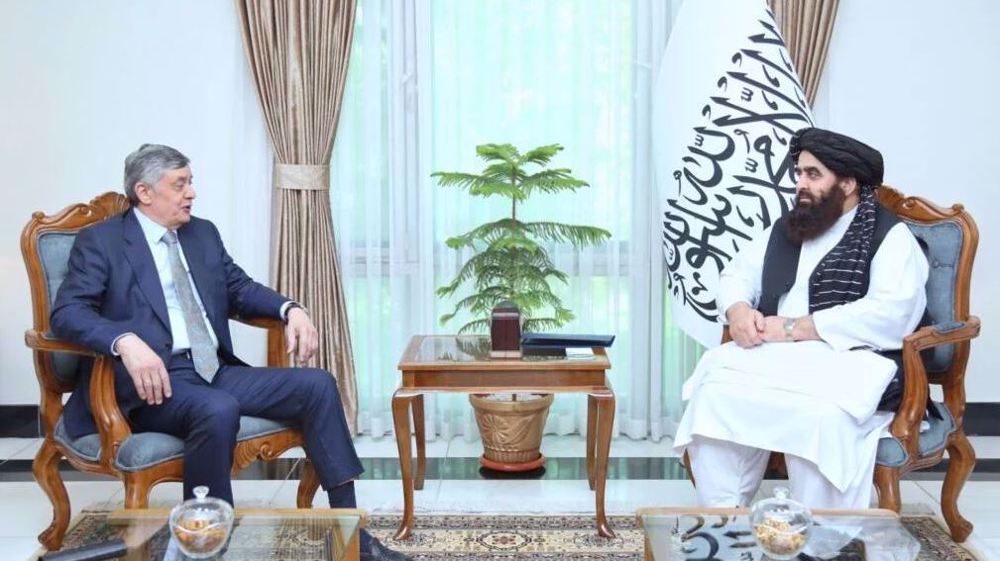Afghanistan warns Taliban against staying out of peace process
Afghan Deputy Foreign Minister Hekmat Khalil Karzai has warned the Taliban militant group against staying out of an ongoing peace process with the government in Kabul.
Karzai told reporters during a press briefing in the Afghan capital, Kabul, on Tuesday that those militants who opt for war will face serious consequences.
"We will use all the means we have against those who do not," he said.
Pointing to the recently-held four-way talks aimed at reviving dialog between Kabul and the Taliban militant group, Karzai noted that all participants at Monday's gathering in the Pakistani capital, Islamabad, wanted to bring "permanent peace" to Afghanistan.
The remarks come a day after officials from Afghanistan, Pakistan, China and the United States met in Islamabad in an attempt to revive a stalled peace process.
The Taliban factions were not invited to the one-day meeting in Pakistan. Participants agreed to meet again in the Afghan capital on January 18, again without Taliban participation.
There have been growing differences among Taliban elements over peace talks with the Afghan government, with some vowing to fight for power instead of taking part in negotiations.
Meanwhile, senior officials from Afghanistan and Pakistan continued to publicly differ on the way forward. The Pakistani prime minister's adviser on foreign affairs, Sartaj Aziz, has also dismissed speculations that Pakistan had promised the use of force against Taliban factions that were unwilling to come to the negotiation table.
The final communiqué of the Monday meeting, however, laid emphasis on the need for direct talks between the Kabul government and Taliban.
"The participants emphasized the immediate need for direct talks between representatives of the Government of Afghanistan and representatives from Taliban groups in a peace process that aims to preserve Afghanistan's unity, sovereignty and territorial integrity," said the statement.

Pakistan hosted a first round of peace talks between Taliban and Afghan leaders in July. The talks were halted after the militants belatedly announced the death of their longtime leader Mullah Omar.
The legitimacy of Omar's former deputy Mullah Akhtar Mansour, who assumed the leadership last July, has been rejected by some Taliban factions. The rival factions have accused Mansour of being affiliated to Pakistani spy agency, Inter-Services Intelligence (ISI).
Elsewhere in his remarks, Karzai described the country's conflict as "not a war between Afghans" and stressed the involvement of "foreign elements."
Kabul has long accused Islamabad of continuing to covertly back the Taliban militant group.
Relations between Afghanistan and Pakistan have been tense in recent years over the ongoing militancy. Senior Afghan officials have frequently blamed elements inside the ISI for harboring the Taliban and sponsoring the militancy, while Islamabad blames the Afghan government for giving shelter to the militants on its side of the border.
The Taliban have been operating in both Afghanistan and neighboring Pakistan.
In December 2015, senior Afghan and Pakistani officials agreed during a meeting in Islamabad to stop accusing each other over Taliban-led violence that has been plaguing both countries.
VIDEO | Yemenis praise the military for its successful operations against Israel
VIDEO | Israel continues to bomb Gaza homes
VIDEO | An insider's view of the country: Meybod City in Yazd
‘All wars have rules. All of those rules have been broken’ by Israel
VIDEO | Report flags India’s violation of rights of Rohingya detainees
Turkey's foreign minister meets Syria's de facto leader in Damascus
VIDEO | US Syria plots
'Next to impossible' to rescue patients from Gaza's Kamal Adwan Hospital: Director















 This makes it easy to access the Press TV website
This makes it easy to access the Press TV website